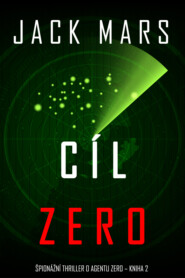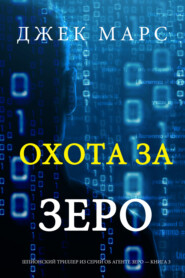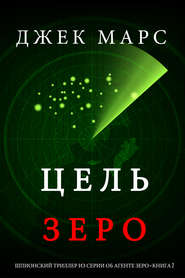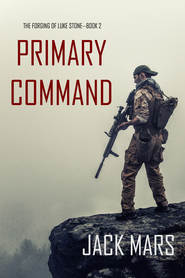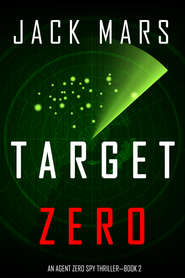По всем вопросам обращайтесь на: info@litportal.ru
(©) 2003-2025.
✖
President Elect
Настройки чтения
Размер шрифта
Высота строк
Поля
Well, today Monroe would give his people the murderer part. He wished he could be there inside the Oval Office and see her face when this news broke.
The crowd had quieted again. They were waiting for him now.
“I want you to listen to me for a minute,” he said. “Because what I’m about to tell you is a little bit complicated, and it’s not easy on the ears. But I’m going to tell it because you have to know it. You, the American people, the true patriots, deserve to know. It’s very important. Our future is at stake.”
He had them. They were ready now. Here it came. The Hail Mary pass. The bomb. Jefferson Monroe geared himself up and launched it.
“Five days before election day, a man turned up dead near the Tidal Basin right here in Washington, DC.”
His people had gone silent. A dead man? This was something new. It was not the typical Jefferson Monroe rally topic. It seemed that thousands of pairs of eyes were riveted to him. In fact, that was indeed the case. Give us something, those big hollow eyes seemed to say. Give us the meat.
“At first glance, it seemed like the man had committed suicide. He was shot in the head, the gun was found near his body, and his fingerprints were on the gun. It didn’t make much impact in the news at the time – people die every day, and often enough, they take their own lives. But I knew, okay, folks? I knew that this man didn’t kill himself.”
The eyes watched him. Thousands and thousands of eyes.
“How did I know that?”
No one said a word. Jefferson Monroe had never seen such a large group of people so quiet in his entire life. They sensed something big was coming, and that he was the one bringing it.
“I knew he didn’t commit suicide because I knew this man personally. I’d almost say he was a friend of mine. His name was Patrick Norman.”
Jefferson was no stranger to telling big lies. Even so, and unlike many politicians, he felt a certain twinge when he did it. It wasn’t guilt. It was the sense that somewhere out there, someone knew the truth, and that person would work tirelessly to bring the truth to light. In fact, it wasn’t even somewhere out there – at least three people standing behind him on the stage knew the facts. There were probably a dozen others in the organization. They knew that Jeff Monroe had never once spoken to Patrick Norman.
He pressed on.
“Patrick Norman was not suicidal – far from it. On the contrary, he was one of the best and most successful private investigators in the United States, and he made a lot of money. I know what he made because I was paying him. He was working for my campaign at the time of his death.
“Campaigning is a dirty business, folks. I’ll be the first to tell you that. Sometimes you do things you’re not proud of to get a leg up on your opponent. And I hired Patrick to look into corruption in the Hopkins administration, and in the business dealings of the soon-to-be former President’s husband, Pierre Michaud. Okay? Do you see where this is going?”
A ripple of assent, a loud murmur, went through the crowd like a rolling wave.
“Patrick called me on the phone a couple of days before he died, and he said, ‘Jeff, I’ve got the dirt you’re looking for. I just need to follow up on a couple of last leads. But this thing I have – the bad things she’s done – is going to blow this election wide open.’”
This was a lie stacked on top of a lie. Norman never called him. He never called him Jeff – he never called him at all. He had no dirt on Susan Hopkins, even after nearly a year of looking. He had determined that she was probably squeaky clean, or if not, the dirt was buried so deep that no one would ever find it.
“What Patrick suggested to me was that Hopkins and her husband accepted bribes from foreign leaders, including Third World dictators, in exchange for favorable treatment from the United States government. He also suggested that there was a quid pro quo going on in support of Pierre Michaud’s sham charities. If the dictators would make Michaud look good by letting him build his fake water systems – water systems that help no one, folks! – the USA would sell them weapon systems. This is shocking stuff. And folks, that was the last I ever heard from Patrick Norman. He had the dirt on Susan Hopkins. Then he died, apparently by his own hand.”
Now a ripple of boos went through the crowd.
“But it wasn’t by his own hand, right? Yesterday afternoon, the Washington, DC, medical examiner’s office released their findings. Patrick Norman did not fire the gun that killed him. And he had marks on his body consistent with a struggle. All indications are that someone killed him and made it look like a suicide.”
He paused and let the moment draw its breath. These were the true parts, and the parts that were especially damning.
“Five days before the election, Patrick Norman, the man with the dirt on Susan Hopkins, was murdered.”
The crowd exploded into a fit of ecstasy. This was what they wanted, all they had ever wanted – something that seemed to confirm everything that they just knew about Susan Hopkins. She was corrupt to her core, and she would have someone killed to cover her trail of deception.
As the crowd cheered, the cheer began to morph into something, the chant that had emerged late in the campaign. It was the most dangerous chant of all, one that Gerry the Shark had released into the public sphere through his Gathering Storm goon squad.
“KICK…HER…OUT!.. KICK…HER…OUT!”
Then a strange and wonderful thing happened.
Even as his people chanted violence, a white dove flew down from the sky, hovered about Jefferson Monroe for a moment, then alighted onto the right shoulder of his wool coat. It flapped its wings a couple of times, then settled down and relaxed. Now he had a dove on his shoulder. The crowd erupted.
It was magic. More than that, it was a sign. A sign from God.
He moved carefully, trying not to alarm the bird.
I want that bird, Gerry the Shark had shouted into the telephone.
Monroe raised his left arm, trying to quiet the crowd. It worked, sort of.
“This is a dove of peace,” he said. “And this is how we’re going to do it, folks. Peacefully, through the rule of law. Through the enforcement of the laws of the United States. Through the peaceful transfer of power which has been one of our great traditions since the earliest days of the Republic.
“Because we are a nation of laws, Susan Hopkins must vacate the office of President this very day, and leave the White House. The Washington, DC, metro police and the medical examiner have done their jobs – they have determined that Patrick Norman did not kill himself. And now I call on the Justice Department and the FBI to do their jobs – and investigate President Hopkins for murder.”
CHAPTER TWELVE
11:45 a.m. Eastern Daylight Time
The Situation Room
The White House, Washington DC
“Is it a warrant for my arrest?” Susan Hopkins said. “Is that what they’ve issued?”
Kurt Kimball turned the sound down on the video monitor. They had just watched Jefferson Monroe’s speech again – Luke had seen it three times now.
Although there were other festivities at Monroe’s rally earlier this morning, it didn’t matter what else came after that. A minor country music star had taken the stage and tried to entertain the crowd with a song about America, but within seconds people were already drifting away.
They hadn’t come for music – they had come for a public lynching, which was pretty close to what they had gotten.
Now Luke glanced around the Situation Room, watching the reactions. It was a packed house, a gathering of the tribes. People from the election campaign, Secret Service, Susan’s people, the Vice President’s people, some people from the Democratic Party. Luke didn’t see a lot of fight in the eyes of these people. Some of them were obviously monitoring the proceedings in search of a good time to jump ship before it sank to the bottom of the ocean.
Scenes like this were not Luke’s normal environment. He felt out of place, and even more than that. He recognized that a group of people were trying to make difficult decisions, but he didn’t have a lot of patience for the process. His typical response to a problem had always been to think of something, then act on it. Meanwhile, Kurt Kimball seemed confused. Kat Lopez seemed stricken. Only Susan seemed calm.
Luke watched Susan closely, looking for signs of collapse. It was a habit he had picked up in war zones, especially during downtime between battles – he would become acutely aware of how much the people around him had left in the tank. Stress took its toll, and people were worn down by it. Sometimes it happened gradually, and sometimes it happened instantly. But either way, there came a time when all but the most hardcore fighters would fold under pressure. Then they would cease to function.
But Susan didn’t seem to have reached that place yet. Her voice was steady. Her eyes were hard and unflinching. She was in a bad place, but she was still fighting. Luke was glad about that. It would make it easier to fight alongside her.
Kurt, at the front of the room near the big projection screen, shook his perfectly bald head. “No. You are a person of interest in the case, but not a suspect. The Washington, DC, Metro Police, specifically the Homicide Division, have simply made a request for an interview. They would like you to come in to their headquarters. You would have your legal counsel with you, and available at all times. That said, if you grant them the interview, you could become a suspect during the course of it. At which point, you could be arrested.”
Kurt glanced at the White House legal counsel, a straight-laced man in a three-piece suit, and a mop of sandy hair on top of his head. He had two aides with him.
“Would you say that’s right, Howard?” Kurt said.
Howard nodded. “I would not grant them an interview at this time, and certainly not an in-person interview. Not here, and under no circumstances at one of their facilities. You could go in and have a hard time getting out again, especially in the current climate. If they want to do an interview, it should be over the telephone or maybe a video conference. You’re busy, Susan. You’re President of the United States. You want to meet your responsibilities in this case, but you also have a lot of other things to do.”
The crowd had quieted again. They were waiting for him now.
“I want you to listen to me for a minute,” he said. “Because what I’m about to tell you is a little bit complicated, and it’s not easy on the ears. But I’m going to tell it because you have to know it. You, the American people, the true patriots, deserve to know. It’s very important. Our future is at stake.”
He had them. They were ready now. Here it came. The Hail Mary pass. The bomb. Jefferson Monroe geared himself up and launched it.
“Five days before election day, a man turned up dead near the Tidal Basin right here in Washington, DC.”
His people had gone silent. A dead man? This was something new. It was not the typical Jefferson Monroe rally topic. It seemed that thousands of pairs of eyes were riveted to him. In fact, that was indeed the case. Give us something, those big hollow eyes seemed to say. Give us the meat.
“At first glance, it seemed like the man had committed suicide. He was shot in the head, the gun was found near his body, and his fingerprints were on the gun. It didn’t make much impact in the news at the time – people die every day, and often enough, they take their own lives. But I knew, okay, folks? I knew that this man didn’t kill himself.”
The eyes watched him. Thousands and thousands of eyes.
“How did I know that?”
No one said a word. Jefferson Monroe had never seen such a large group of people so quiet in his entire life. They sensed something big was coming, and that he was the one bringing it.
“I knew he didn’t commit suicide because I knew this man personally. I’d almost say he was a friend of mine. His name was Patrick Norman.”
Jefferson was no stranger to telling big lies. Even so, and unlike many politicians, he felt a certain twinge when he did it. It wasn’t guilt. It was the sense that somewhere out there, someone knew the truth, and that person would work tirelessly to bring the truth to light. In fact, it wasn’t even somewhere out there – at least three people standing behind him on the stage knew the facts. There were probably a dozen others in the organization. They knew that Jeff Monroe had never once spoken to Patrick Norman.
He pressed on.
“Patrick Norman was not suicidal – far from it. On the contrary, he was one of the best and most successful private investigators in the United States, and he made a lot of money. I know what he made because I was paying him. He was working for my campaign at the time of his death.
“Campaigning is a dirty business, folks. I’ll be the first to tell you that. Sometimes you do things you’re not proud of to get a leg up on your opponent. And I hired Patrick to look into corruption in the Hopkins administration, and in the business dealings of the soon-to-be former President’s husband, Pierre Michaud. Okay? Do you see where this is going?”
A ripple of assent, a loud murmur, went through the crowd like a rolling wave.
“Patrick called me on the phone a couple of days before he died, and he said, ‘Jeff, I’ve got the dirt you’re looking for. I just need to follow up on a couple of last leads. But this thing I have – the bad things she’s done – is going to blow this election wide open.’”
This was a lie stacked on top of a lie. Norman never called him. He never called him Jeff – he never called him at all. He had no dirt on Susan Hopkins, even after nearly a year of looking. He had determined that she was probably squeaky clean, or if not, the dirt was buried so deep that no one would ever find it.
“What Patrick suggested to me was that Hopkins and her husband accepted bribes from foreign leaders, including Third World dictators, in exchange for favorable treatment from the United States government. He also suggested that there was a quid pro quo going on in support of Pierre Michaud’s sham charities. If the dictators would make Michaud look good by letting him build his fake water systems – water systems that help no one, folks! – the USA would sell them weapon systems. This is shocking stuff. And folks, that was the last I ever heard from Patrick Norman. He had the dirt on Susan Hopkins. Then he died, apparently by his own hand.”
Now a ripple of boos went through the crowd.
“But it wasn’t by his own hand, right? Yesterday afternoon, the Washington, DC, medical examiner’s office released their findings. Patrick Norman did not fire the gun that killed him. And he had marks on his body consistent with a struggle. All indications are that someone killed him and made it look like a suicide.”
He paused and let the moment draw its breath. These were the true parts, and the parts that were especially damning.
“Five days before the election, Patrick Norman, the man with the dirt on Susan Hopkins, was murdered.”
The crowd exploded into a fit of ecstasy. This was what they wanted, all they had ever wanted – something that seemed to confirm everything that they just knew about Susan Hopkins. She was corrupt to her core, and she would have someone killed to cover her trail of deception.
As the crowd cheered, the cheer began to morph into something, the chant that had emerged late in the campaign. It was the most dangerous chant of all, one that Gerry the Shark had released into the public sphere through his Gathering Storm goon squad.
“KICK…HER…OUT!.. KICK…HER…OUT!”
Then a strange and wonderful thing happened.
Even as his people chanted violence, a white dove flew down from the sky, hovered about Jefferson Monroe for a moment, then alighted onto the right shoulder of his wool coat. It flapped its wings a couple of times, then settled down and relaxed. Now he had a dove on his shoulder. The crowd erupted.
It was magic. More than that, it was a sign. A sign from God.
He moved carefully, trying not to alarm the bird.
I want that bird, Gerry the Shark had shouted into the telephone.
Monroe raised his left arm, trying to quiet the crowd. It worked, sort of.
“This is a dove of peace,” he said. “And this is how we’re going to do it, folks. Peacefully, through the rule of law. Through the enforcement of the laws of the United States. Through the peaceful transfer of power which has been one of our great traditions since the earliest days of the Republic.
“Because we are a nation of laws, Susan Hopkins must vacate the office of President this very day, and leave the White House. The Washington, DC, metro police and the medical examiner have done their jobs – they have determined that Patrick Norman did not kill himself. And now I call on the Justice Department and the FBI to do their jobs – and investigate President Hopkins for murder.”
CHAPTER TWELVE
11:45 a.m. Eastern Daylight Time
The Situation Room
The White House, Washington DC
“Is it a warrant for my arrest?” Susan Hopkins said. “Is that what they’ve issued?”
Kurt Kimball turned the sound down on the video monitor. They had just watched Jefferson Monroe’s speech again – Luke had seen it three times now.
Although there were other festivities at Monroe’s rally earlier this morning, it didn’t matter what else came after that. A minor country music star had taken the stage and tried to entertain the crowd with a song about America, but within seconds people were already drifting away.
They hadn’t come for music – they had come for a public lynching, which was pretty close to what they had gotten.
Now Luke glanced around the Situation Room, watching the reactions. It was a packed house, a gathering of the tribes. People from the election campaign, Secret Service, Susan’s people, the Vice President’s people, some people from the Democratic Party. Luke didn’t see a lot of fight in the eyes of these people. Some of them were obviously monitoring the proceedings in search of a good time to jump ship before it sank to the bottom of the ocean.
Scenes like this were not Luke’s normal environment. He felt out of place, and even more than that. He recognized that a group of people were trying to make difficult decisions, but he didn’t have a lot of patience for the process. His typical response to a problem had always been to think of something, then act on it. Meanwhile, Kurt Kimball seemed confused. Kat Lopez seemed stricken. Only Susan seemed calm.
Luke watched Susan closely, looking for signs of collapse. It was a habit he had picked up in war zones, especially during downtime between battles – he would become acutely aware of how much the people around him had left in the tank. Stress took its toll, and people were worn down by it. Sometimes it happened gradually, and sometimes it happened instantly. But either way, there came a time when all but the most hardcore fighters would fold under pressure. Then they would cease to function.
But Susan didn’t seem to have reached that place yet. Her voice was steady. Her eyes were hard and unflinching. She was in a bad place, but she was still fighting. Luke was glad about that. It would make it easier to fight alongside her.
Kurt, at the front of the room near the big projection screen, shook his perfectly bald head. “No. You are a person of interest in the case, but not a suspect. The Washington, DC, Metro Police, specifically the Homicide Division, have simply made a request for an interview. They would like you to come in to their headquarters. You would have your legal counsel with you, and available at all times. That said, if you grant them the interview, you could become a suspect during the course of it. At which point, you could be arrested.”
Kurt glanced at the White House legal counsel, a straight-laced man in a three-piece suit, and a mop of sandy hair on top of his head. He had two aides with him.
“Would you say that’s right, Howard?” Kurt said.
Howard nodded. “I would not grant them an interview at this time, and certainly not an in-person interview. Not here, and under no circumstances at one of their facilities. You could go in and have a hard time getting out again, especially in the current climate. If they want to do an interview, it should be over the telephone or maybe a video conference. You’re busy, Susan. You’re President of the United States. You want to meet your responsibilities in this case, but you also have a lot of other things to do.”






